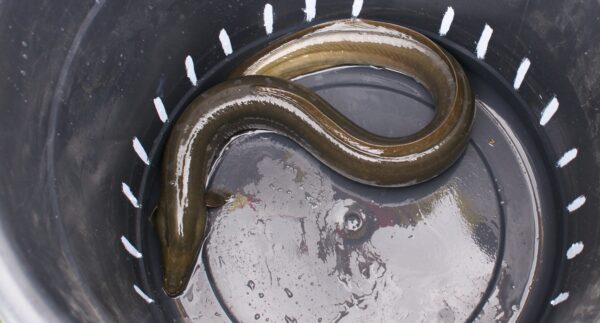DNA testing has confirmed widespread – and probably illegal – international trading of critically endangered European eels.
A research team led by the University of Exeter carried out “DNA barcoding” on products including jellied eels and unagi, which is used in sushi and donburi. With European eel populations at about 5-10% of their former levels, the EU has banned the import and export of European eels.
The researchers analysed 114 samples and combined their results with existing published research, finding European eels – and endangered American and Japanese eels – on sale in the UK, Continental Europe, North America and Asia.
“The growing popularity of Japanese cuisine worldwide has caused an increasing demand for freshwater eels,” said Dr Andrew Griffiths, from the University of Exeter.
“The complex lifecycle of these eels – which includes migrating from rivers to spawn in the sea – means they cannot be bred at large scale in captivity.
“So the illegal trade involves catching young eels in Europe, transporting them to East Asia and growing them on in fish farms.”
The new study tested eel-based foods in North America and Europe. About 40% of North American unagi samples they analysed contained European eel.
“It’s hard to track where the eels come from, but it’s unlikely that all of those found in the samples came from the small amounts of legally exported European eels from North Africa,” said joint first author Kristen Steele, of University College London.
“It’s very possible that illegal trading brought these eels into the supply chain.”
Critically endangered species
Most traditional UK eel products sampled, like the jellied eels famously sold in London’s East End, were made from European eels. Such products may be legal, but they still involve the consumption of a critically endangered species.
The researchers stressed that factors such as habitat disturbance (including dams) and climate change are contributing to the decline of eel populations.
But overfishing also plays a role – and consumption of European eels in traditional dishes in Europe has caused recent controversy.
The paper, published in the journal Food Control, is entitled: “For R-eel?! Investigating international sales of critically endangered species in freshwater eel products with DNA barcoding.”
